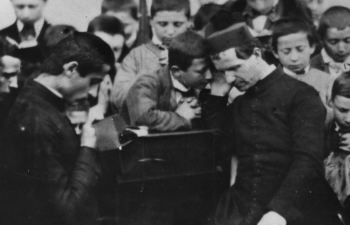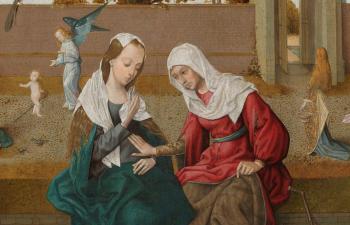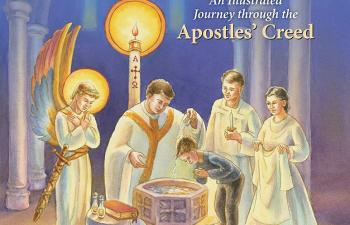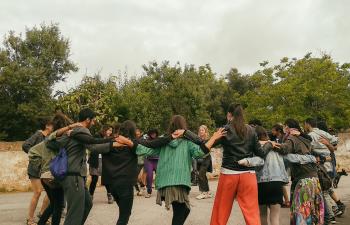While magisterial documents on catechesis refer to parents as a child’s primary religious educators,[1] many parents and parish religious educators misunderstand the import of this statement. Parents are not expected to do a formal classroom-type catechesis. Instead, the parents’ role is one they are uniquely positioned to fulfill: their vocational responsibility to inculcate the faith on a day-to-day level through prayer, liturgical celebration, and moral formation. Unlike catechists, who might have one hour per week with children, parents are with their children daily throughout their formative years, with the potential to establish habits of prayer, foster participation in the liturgy, and direct real progress in moral formation. While parish and school catechists can provide guidance and support, as well as teach doctrine, parents and family members are essential to the actual living of the faith. Good formation within the family, therefore, provides a solid foundation for formal catechesis so that both can be mutually enriching.[2]
Parents are indispensable in the development of moral conscience and virtue. This is because, as the National Directory for Catechesis explains, “Moral catechesis involves more than the proclamation and presentation of the principles and practice of Christian morality. It presents the integration of Christian moral principles in the lived experience of the individual and the community.”[3] The family is the child’s first and most important community for this essential aspect of moral formation. The National Directory for Catechesis confirms that parents are responsible for the moral formation of children, according to the natural law. “Parents are catechists precisely because they are parents. Their role in the formation of Christian values in their children is irreplaceable.”[4]
What is Virtue? What is Goodness?[5]
Virtue is a habit or habitus. The Latinized form is more suitable here because our familiar understanding of the word ‘habit’ doesn’t quite fit when considering virtue. As habitus, virtue occupies a position between the powers of the soul and the acts of the person. It is not simply a repeated action; it is a dynamic ability for growth toward the good in human action. A habitus is required for human powers that have more than one way of being activated. While each physical sense, for instance, has one particular function: the eyes see, the ears hear, and the tongue tastes, the will can desire many things, needing a habitus to give it form; a good will, a weak will, malice all describe the habitus of a particular will. Habitus itself is a neutral term, simply referring to a pattern of growth in a particular human power towards certain kinds of action. For example, the good willed person has a growth-pattern of virtue, but the malicious person has a growth-pattern of vice. Virtues develop through properly human action and the working together of choice and intellect, which affects not simply the resulting actions but also results in the moral development of the human person. The virtue of courage helps to perfect the movements of the irascible power of the soul to actions that embody seeking the good in difficult circumstances. The truly human capacities of knowing and loving require virtue to function well. Further, the moral character of the person is changed through virtue, so that the person with virtue is a good person.
Goodness is an analogous concept. Each thing possesses or displays goodness in a manner that is specific to the kind of thing that it is. A good pen writes well, a good chair is constructed so as to support the person sitting in it. For a person to be good, the powers of the soul, emotions, and passions must be guided by reason to the purpose or goal of life. Christian parents are leading their children to the loftiest of goals: union with God, by imitation of Christ. This is the goodness that comes about through virtue.[6] Growth in virtue, therefore, means growth in goodness, consistently good action that brings joy to the agent.
The rest of this online article is available for current Guild members.
This article is from The Catechetical Review (Online Edition ISSN 2379-6324) and may be copied for catechetical purposes only. It may not be reprinted in another published work without the permission of The Catechetical Review by contacting [email protected]



















